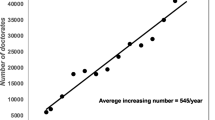Abstract
All agree that if the Milgram experiments were proposed today they would never receive approval from a research ethics board. However, the results of the Milgram experiments are widely cited across a broad range of academic literature from psychology to moral philosophy. While interpretations of the experiments vary, few commentators, especially philosophers, have expressed doubts about the basic soundness of the results. What I argue in this paper is that this general approach to the experiments might be in error. I will show that the ethical problems that would prevent the experiments from being approved today actually have an effect on the results such that the experiments might show less than many currently suppose. Making this case demonstrates two conclusions. The first is that there are good reasons to think that the conclusions of many of Milgram’s commentators might be too strong. The second conclusion is a more general one. The ethics procedures commonly used by North American research ethics boards serve not only to protect human participants in research but also can sometimes help secure, to an extent, the integrity of results. In other words, good ethics can sometimes mean better science.
Similar content being viewed by others
Notes
While it is outside the scope of this paper to evaluate Harman’s case against virtue ethics and character traits in general, some comment is warranted here. Harman’s case against character traits is probably over-stated. As I will demonstrate at a later point, the Milgram experiments are more ambiguous in their results than Harman supposes. However, setting this aside for a moment, Milgram himself and many other commentators do not take the experiments to make so strong a case against general character traits, and Milgram takes them to point to a specific trait, deference to authority. In any event, as I will show, such debates would be easier to resolve if the experiments appealed to had less ambiguous results, and this entails controlling the variable of coercion which would have been the case if current ethical standards had been used.
References
Brown, R. (1986). Social psychology (2nd ed.). New York: Free Press.
Canadian Institutes of Health Research, Natural Sciences and Engineering Research Council of Canada, Social Sciences and Humanities Research Council of Canada. (1998). Tri-Council policy statement: Ethical conduct for research involving humans (with 2000, 2002 and 2005 amendments). http://www.pre.ethics.gc.ca/english/policystatement/. Accessed 19th June 2008.
Council for International Organizations of Medical Sciences. (1993). International ethical guidelines for biomedical research involving human subjects. Geneva.
Doris, J. (2002). Lack of character: Personality, moral behaviour. Cambridge: Cambridge University Press.
Flanagan, O. (1991). Varieties of moral character: Ethics and psychological realism. Cambridge, Mass: Harvard University Press.
Gamson, E., Fireman, B., & Rytina, R. (1982). Encounters with unjust authority. Dorsey: Holmwood, Ill.
Harman, G. (1999). Moral philosophy meets social psychology: Virtue ethics and the fundamental attribution error. Proceedings of the Aristotelian Society, 1998–9(99), 315–331. doi:10.1111/1467-9264.00062
Milgram, S. (1963). Behavioural study of obedience. Journal of Abnormal and Social Psychology, 67, 371–378. doi:10.1037/h0040525.
Milgram, S. (1968). Reply to the critics. International Journal of Psychiatry, 6, 294–295.
Milgram, S. (1974). Obedience to authority. New York: Harper and Rowe.
Sreenivasan, G. (2002). Errors about errors: Virtue theory and trait attribution. Mind, 111, 47–68. doi:10.1093/mind/111.441.47.
The Research Council of Norway. (1994). Guidelines for research ethics in the social sciences, law and the humanities. Oslo.
U.S. Dept. of Health & Human Services (HHS). (2005). Protection of human subjects, Title 45. Code of Federal Regulations, Part 46.116(d).
UNESCO. (1994). Ethical guidelines for international comparative social science research in the framework of M.O.S.T. (Management of Social Transformation). Paris.
Author information
Authors and Affiliations
Corresponding author
Rights and permissions
About this article
Cite this article
McArthur, D. Good Ethics Can Sometimes Mean Better Science: Research Ethics and the Milgram Experiments. Sci Eng Ethics 15, 69–79 (2009). https://doi.org/10.1007/s11948-008-9083-4
Received:
Accepted:
Published:
Issue Date:
DOI: https://doi.org/10.1007/s11948-008-9083-4




